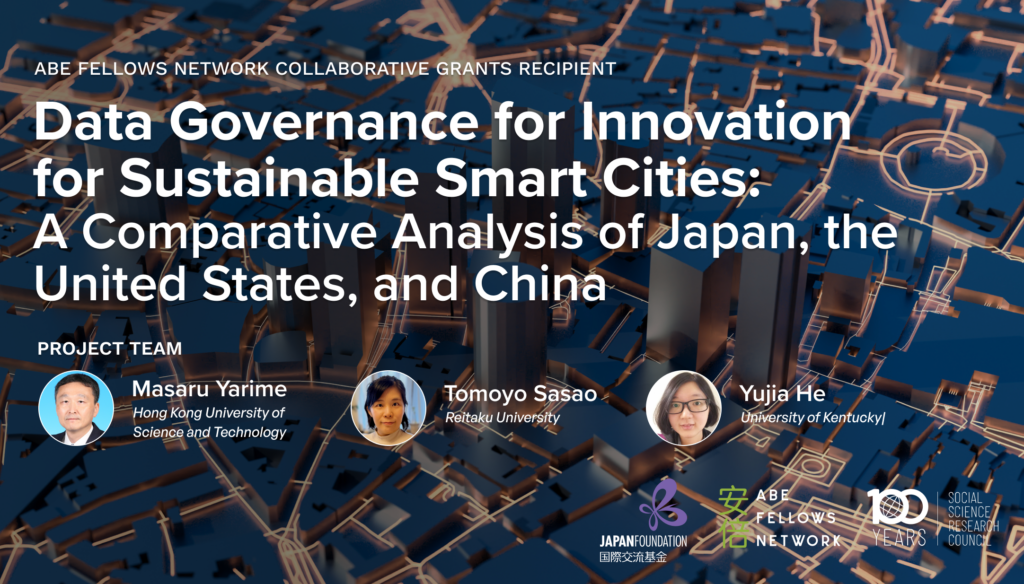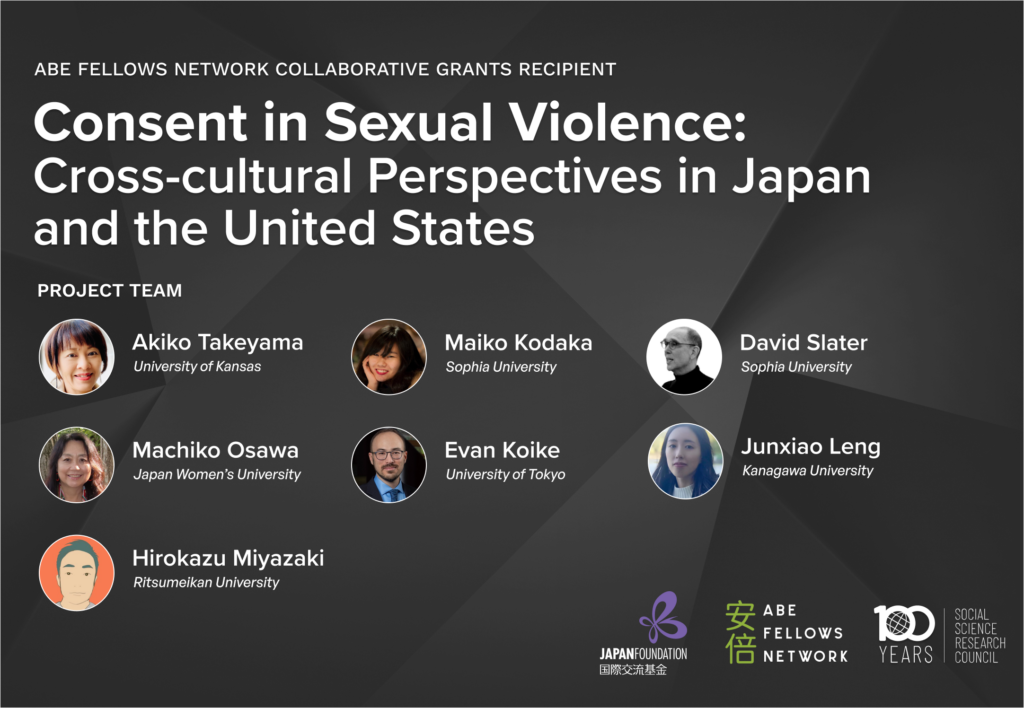The SSRC and the Japan Foundation New York have awarded new research grants to three Abe Fellows leading cross-disciplinary, cross-national research teams working on better understanding important social issues. The projects address data governance in the context of urban innovation, legal and cultural understandings of sexual consent, and resiliency in food production systems.
The Abe Fellows Network at the Social Science Research Council (SSRC), made possible through support from the Japan Foundation New York, is pleased to announce three new research grant awardees. The Abe Fellows Network builds on a more than 30-year partnership between the SSRC and the Japan Foundation to foster collaborative research between US and Japanese scholars. The initiative pairs junior and senior scholars from within and without the network of nearly 450 Abe Fellows to support new collaborative work.
The grantees’ projects span disciplines and fields. For a project on data governance and innovation, a three-country team led by Masaru Yarime of the Hong Kong University of Science and Technology will analyze how “smart” cities in Japan, China, and the US are confronting and surmounting data privacy challenges. For example, Japan’s “Society 5.0” concept builds urban data infrastructures using public-private partnerships, while China uses a more centralized approach, and a still different system is being developed in the United States. The three countries’s experiences suggest alternative ways to address tradeoffs in data sharing for urban innovation.
Akiko Takeyama of the University of Kansas is leading a six-university collaboration to better understand cultural, legal, and administrative approaches to sexual consent in the context of changing sexual harassment and assault laws. College campuses and workplaces in the US have become increasingly sensitized to sexual harassment and assault, and Japan has recently updated its laws to align with international standards. However, cultures may have deep-seated norms that inform individuals’ implicit understandings of sexual consent, and both countries’ laws hinge on definitions of consent. The interdisciplinary team will work to elucidate how countries’ different cultural and legal systems approach this critical topic.
With acceleration of the impacts of climate change on the environment and food supply, long-standing agricultural and food production systems are being forced to change and adapt rapidly. Hirotsugu Uchida of the University of Rhode Island is leading a team that is building on previous work examining how the fishing industry in Wagu, Japan has responded to the dual shocks of climate change and Covid-19. Understanding how this industry has adapted and reorganized to withstand these external pressures may inform how resilience and sustainability can be built into business and organizational systems governing food and other resource-dependent industries.
“The Social Science Research Council has been working with the Japan Foundation for three decades to support cross-disciplinary and cross-cultural scholarship at the forefront of current social issues,” observed Fredrik Palm, vice president of the SSRC. “It has been remarkable to watch this network of nearly 450 Abe Fellows grow in an inclusive way to incorporate early-career researchers and new ideas. I’m excited that through our collaboration, we are able to bring scholars together to learn from Japan’s experience and to build sustained scholarly partnerships.”
Abe Fellows Network Research Grant Awardees



